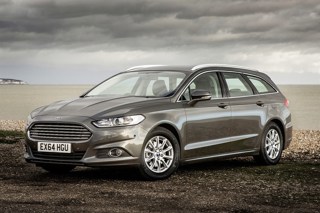Review
The Mondeo, of course, started life as a world car. It was sold as Mondeo in Europe and parts of Asia, but as the Ford Contour and Mercury Mystique in the US and Canada with only minimal changes. Ford was immensely proud of the high degree of commonality in the cars, boasting it had spent a record $6bn (£3.28bn) to achieve it. When a few pundits started wondering how any company could have spent so much money to produce a car that – entertaining handling apart – was so profoundly ordinary, Ford stopped talking about new car development budgets altogether.
The decision to move Mondeo into Volvo's orbit – and the fact Mazda has been given lead engineering responsibility for the next generation Fiesta – means Ford's European car range is now being engineered by three different companies. The only car line now being developed entirely in-house by Blue Oval engineers is the Focus.
All this is little more than simple semantics: Strip away the badges, and everyone working at Ford, Volvo and Mazda all ultimately report to Ford's headquarters in Dearborn, Michigan. What we are seeing is the practical application of what Ford's worldwide product development chief Richard Parry-Jones calls 'Global Shared Technologies', where different Ford-owned companies contribute to the development of common component sets that can be used cost effectively by all Ford brands.
So, is the world car dead? That depends entirely on what badge it's wearing. A Volvo is a Volvo, from Stockholm to Sydney, Singapore to San Francisco. But the Blue Oval means very different things to customers in Europe, Australia, Asia and North America. Global Shared Technologies could be the answer to a problem that has bedevilled Ford for decades.'
Factsheet
No information available.














